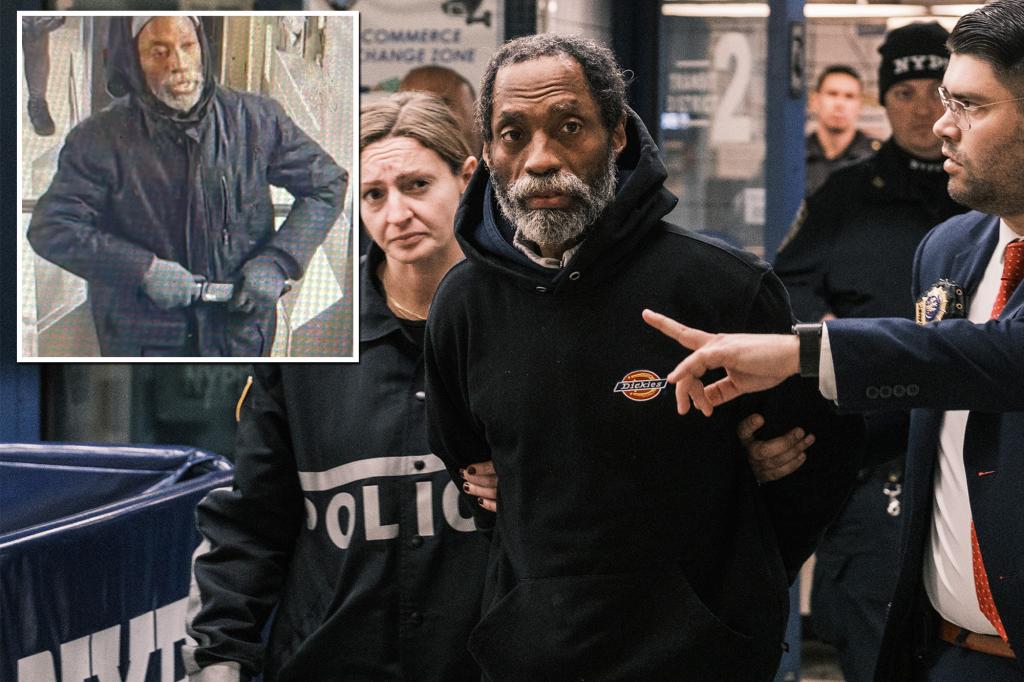Jamar Banks, a 52-year-old individual with an extensive criminal history, has been apprehended by the NYPD in connection with two separate subway stabbings that occurred in Manhattan and the Bronx. Banks’ arrest record reveals a pattern of violent behavior and recidivism, encompassing over 50 arrests for offenses ranging from stabbings and shootings to domestic violence and fare evasion. His documented mental health issues and repeated interactions with law enforcement raise concerns about systemic failures in addressing his recurring criminal conduct and the potential dangers he poses to the public. The recent subway attacks underscore the ongoing challenges of ensuring safety within the transit system and highlight the need for effective strategies to manage individuals with a propensity for violence, especially those with documented mental health concerns.
The first stabbing incident transpired on a No. 2 train in Manhattan, where Banks allegedly engaged in an altercation with a 31-year-old man before resorting to violence. The following day, Banks is accused of attacking an off-duty MTA cleaner on a No. 6 train platform in the Bronx, stabbing the victim in the back and armpit. Both victims were transported to hospitals in stable condition, while Banks evaded capture until his subsequent arrest. Prior to his apprehension, an internal police memo cautioned officers to exercise “extreme caution” when approaching Banks, who was reportedly armed with a large knife at the time of his arrest.
Banks’ criminal history paints a disturbing picture of escalating violence and a disregard for the law. His record includes a 2022 incident where he allegedly stabbed a man on the subway after attempting to sit on the victim’s girlfriend’s lap. In 2015, he was accused of stabbing a man in a downtown Manhattan McDonald’s after the individual knocked on a bathroom door to check for occupancy. Dating back to 1997, Banks faced attempted murder charges for shooting a man in the leg after a minor altercation in the Bronx. The details of the outcomes of these prior cases remain unclear, raising questions about the effectiveness of previous interventions and the potential for stricter measures to prevent further violence.
Beyond his violent offenses, Banks’ record is littered with numerous arrests for fare evasion, drug charges, and various thefts, including instances of shoplifting soap, mouthwash, and beauty products from Walgreens stores across the city. These repeated petty crimes, coupled with more serious violent acts, suggest a pervasive pattern of criminal behavior and a potential disregard for societal norms. His frequent arrests for fare evasion, specifically, highlight his persistent presence within the transit system, potentially exposing commuters to further risk. His arrest for resisting arrest in one of the theft cases further underscores his defiance of authority and adds another layer of concern regarding his potential for violent confrontation.
The recurring nature of Banks’ criminal behavior and his documented history of mental illness raise questions about the adequacy of existing systems to address his complex needs and protect public safety. While he reportedly underwent at least one psychological evaluation while in custody over the past four years and was flagged by police as potentially suicidal and emotionally disturbed, it appears these interventions were insufficient to prevent further violent acts. This raises the need for a more thorough examination of the support systems available for individuals with mental illness involved in the criminal justice system, as well as the potential for more proactive measures to address repeat offenders with violent tendencies.
The case of Jamar Banks serves as a stark reminder of the challenges faced by law enforcement and mental health professionals in addressing the complex interplay of criminal behavior and mental illness. His extensive arrest record, punctuated by violent acts and a consistent pattern of recidivism, highlights the need for a comprehensive approach that incorporates effective law enforcement strategies, robust mental health services, and a greater understanding of the underlying factors contributing to his repeated criminal conduct. Ultimately, a multi-faceted approach is necessary to ensure both the safety of the public and the well-being of individuals like Banks who struggle with mental health issues and engage in criminal behavior.

